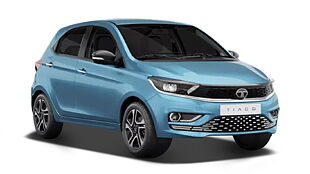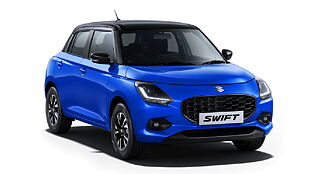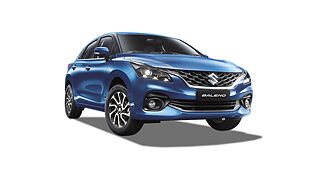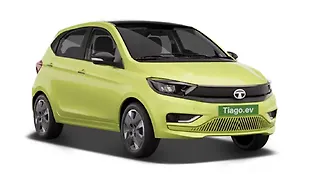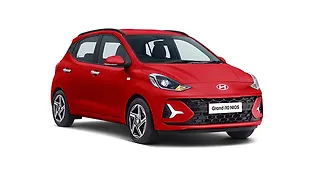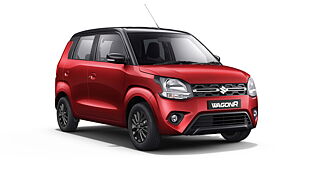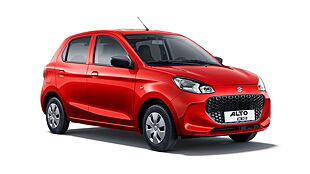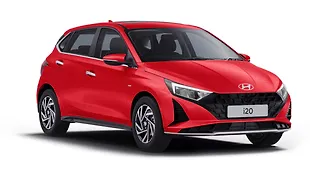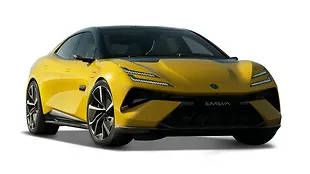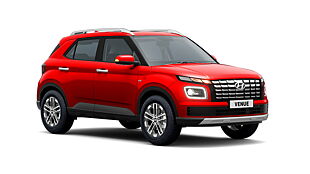Prelude
I was in a deep slumber when my boss-man – Abhishek Nigam – ringed and told me that I am supposed to embark on a road trip across three states, along with my colleague – Venkat Desirazu – in the all-new Hyundai i20, as a part of the Hyundai Great India Drive 2020. I was all excited to finally be able to do something that I love – road tripping! But that’s when it dawned upon me. How safe would it be to travel in the new normal? Will we be able to find safer hotels/restaurants, and above all, will the places we visit be safe in general?

We had our reservations, and quite literally so. 2020 has possibly been the worst year in the history of the 21st century. Normal life came to a grinding halt, businesses have endured significant losses, and the society had to stay indoors for its very existence.

But, with the government relaxing lockdown guidelines, and the economy on its upward course, we have found a way to embark on a road-trip in a much safer way in this era of the new normal. And helping us do that, is the all-new Hyundai i20.
Route

India is a country that’s best enjoyed with its local flavours and in its intricate details. But, with safety at stake, we had to be extra cautious with our destination and the route for the Hyundai Great India Drive. So, we consciously decided to visit lesser-known places that would have lesser footfalls from tourists, and will eventually be safe for us to travel.

In this edition of the Hyundai Great India Drive, we decided to explore Rajasthan. Now, normally when you talk about Rajasthan, the first thing that comes to your mind would be the popular destinations like Jaipur, Udaipur, etc. But, with our resolve to stay away from the crowds, we decided to visit lesser-known towns like Kota and Bundi.

Located in the heart of Rajasthan, Kota is the third-largest town in the state, situated on the banks of the Chambal River. Over the course of the next few days, we would explore the sights of these places, and well, taste the local cuisine too, and also understand the significance of the IIT coaching institutes in Kota.
Our Wheels to Explore Rajasthan

We had the all-new fourth-generation Hyundai i20 at our disposal in the top-spec Asta (O) diesel manual trim. Launched earlier this year, the new i20 is available with three engine/gearbox options and you can choose between eight colour options.

The car that we are driving is powered by a 1.5-litre diesel engine producing 99bhp/240Nm and comes mated to a six-speed manual transmission. For more detail about the new Hyundai i20, you can click HERE for CarWale’s review of the premium hatchback. Now, before we get on to exploring Rajasthan, here are a few tips on safe travel habits to follow during road-trips, and guidelines for sanitising yourself and the car.

Sanitisation Guidelines for Your Car
Now in this era of new normal, making a road trip possible involves some very important procedures to ensure safety for everyone. At the top of this list is sanitising your car and here is how you can go about it.

To sanitise the car, you need a clean cloth and a surface sanitiser preferably in a spray bottle. Firstly, sanitise your hand before you begin the process. It starts with cleaning the outer door handles thoroughly and once completed, move to the inside of the cabin.

Inside, you need to clean the inner door handles, power window switches and mirror controls, elbow pad, as well as the grab handle that you would use to shut the door. Once you have seated yourself, clean the seat belt latch as well as the locking mechanism.

From here, move to the steering wheel, gear lever, AC controls, front armrest, and the cup holders. If you have a touchscreen infotainment system, spray the sanitiser onto the cloth and wipe gently after 10 seconds. This is a sensitive area that should be treated with extra caution and shouldn’t be cleaned unless necessary.

Once you have completed the sanitisation process from the driver’s side, handover the kit to your passengers and have them do the same process for their space before stepping into the vehicle. A few words of warning. If it’s a hot day, wait for the car to cool down before you spray the sanitiser onto any surface, both inside and outside. Do not store your sanitisation kit inside the car, it defeats its purpose, and more importantly, may become a potential fire hazard.
Safe Travel Habits During Road-trips

Now that we are done with the sanitisation bit, the other important aspect is safe travel habits. These include maintaining personal hygiene on a daily basis, social distancing from the crowd, and practising e-payments wherever possible.

At the top of the list is navigating through toll-booths. With Fastags becoming mandatory, it is the best system to prevent yourself from having to lower your windows while making a payment. The next safer option is to use e-payment gateways like Google Pay or a Wi-Fi-enabled credit/debit card wherever possible. If you are left with no option and have to resort to cash payment, the money bills should be handled with a plastic clip while giving and receiving to avoid external contact.

But as luck would have it, or call it irony, we faced outright non-acceptance of e-payments at many toll-booths on our route. Another thing to note, while on the go, when grabbing a meal, choose an outlet that practices social distancing, uses e-payments, and follows safe serving practices. And if you can, try to carry ready-to-eat meals that can be had in to-go containers and eat near your vehicle, thereby minimising external contact altogether. And while you are at it, always remember to dispose of your waste correctly.

You can also invest in an in-car air purifier, which not only provides healthier air but also protects the occupants from various viruses and bacteria. Thankfully, the all-new Hyundai i20 comes loaded with an in-built air purifier.

Flag-Off and Gurugram to Jaipur

With the car sanitisation done and dusted, we were flagged-off from the ITC Grand Bharat, a luxury collection hotel, and were on our way on the 2020 Hyundai Great India Drive. Although the main highlight of the trip was Kota, our destination for the day was Jaipur, which was some 250-odd km away. With the hotel located in rural Gurugram, the Hyundai i20’s in-built navigation came in handy to navigate us through the narrow by-lanes of Manesar, and onto NH48.

Once on the highway, we made quick progress, courtesy the Hyundai i20’s effortless performance. With the sun on top of us, and hunger pangs in our tummies, we took a quick halt for lunch at ‘Basant Dhaba’, a clean and safe restaurant by the road. With most of the safety precautions in place, we ordered our food, while the video and photography teams went ahead with their job.

The platter of Chole Bhatures, Paranthas, Dal Makhani, and our favourite Sarso Da Saag and Makkai Di Roti were smothered in no time. After the e-payment of the bill, we were back on the road. Here’s where we got our first-hand experience of the ongoing farmers’ protest on the National Highway heading out of Delhi NCR.

As we continued on our way to Jaipur, with the setting-sun ahead of us, the drive was mesmerising, to say the least. With no fixed agenda and Jaipur being just a night halt for the day, we decided to take it easy on the road, and soak in the sights of the country-side.

It started getting darker and in no time, we were within touching distance of Jaipur. With a strict night curfew in place, we were confined in our hotel rooms. Soon, we got done with our dinner and called it a day, as the next few days would be quite a hustle.
Jaipur to Kota: Exploring Bundi Town

We had an early start on day two of the 2020 Hyundai Great India Drive, as the destination for the day was Kota. However, our plan included visiting the lesser-known town of Bundi, which is famous for quite a few monuments.

The temperatures outside were bone-chilling, but we were cocooned by the i20, thanks to the automatic climate system working overtime to keep us warm and cosy. Roads, in general, are good in Rajasthan, but this stretch between Jaipur and Kota was in excellent shape.

And, the Hyundai i20 made short work of munching miles, courtesy of the strong mid-range pull of the oil burner. We could easily maintain triple-digit speeds, wherever permissible. And despite us pushing the i20 through its paces, the fuel economy never dropped below 19kmpl.

With Kota still 150-odd km away, we took a quick stopover for breakfast. The i20’s radical styling is well-appreciated by the CarWale team, and it didn’t come as a surprise when the locals took a liking for the car and checked it inside-out during one such break.

After hustling our way through the endless queue at the toll-booth just before Bundi town, which is also where we faced reluctance with e-payments, we finally reached our first place of visit – Raniji Ki Baori. Located in the heart of Bundi town about 30km from Kota, it is essentially a stepwell meant to be massive water storage for the urban areas surrounding it.
Raniji Ki Baori

The Baori was built in 1699 by Rani Nathavati Ji, the younger queen of Rao Raja Anirudh Singh, ruler of Bundi. And among the 20 or so step-wells that she constructed, this is the grandest and possibly the most important one of them all. The stepwell is a multi-storied structure covered in intricate and beautifully executed carvings. The well is 40 feet wide and 200 feet deep with 200 steps leading down to the water source.

It has a narrow entrance, with four pillars joined at the top by slender arches which are decorated by intricately carved stone brackets. Stone elephants stand in each corner. There are also places of worship on every floor, which is very unique in terms of step wells.

It’s also more than likely that in its heyday, the stepwell was a place of public gathering where the locals could escape the intense summer heat by taking refuge in the Baori’s massive depth and proximity to a large amount of water.

Given the way it has been designed, it would have been a splendid sight for members of the royal families and upper crusts of local society to be seated high above and watch dance performances as well as plays.
Sukh Mahal

In our pursuit to visit the Raniji ki Baori, we ended with a bonus of sorts. While purchasing the tickets, we discovered that for a small additional amount, we could get access to two additional historical structures close to the Baori.

The first of which was the Sukh Mahal, on the banks of the Jait Sagar Lake. It was built by Rao Raja Vishnu Singh in 1776. Constructed in the traditional Rajput style of architecture, the palace houses a finely manicured garden which was the perfect place for the members of the royal family to enjoy the summer evenings.

The walls of the palace are richly decorated with amazing paintings. The main attraction of Sukh Mahal is a white marble Chhatri (umbrella) located on the terrace of the second storey of the mahal.

However, the palace also has a connection to the world of literature. Rudyard Kipling, the British author of the timeless classic Jungle Book, spent time in this very palace while writing another one of his hits, Kim. It is believed the majestic view of the lake and the environment in the Mahal inspired him to put pen to paper and create the novel.

In modern times, apart from the majestic view, the place also hosts a museum and of course, the beautiful garden.
Chaurasi Khambon ki Chhatri aka Cenotaph with 84 Pillars

Known locally as the Chaurasi Khambon ki Chhatri, it was constructed in the year 1683 by the Maharaja of Bundi, Rao Raja Anirudh in the memory of his nurse, Deva, under whose love and guidance the prince was brought up.

It is also widely known as 'Music Maharani's Chhatri”. It is said, that one cannot count all the 84 beams at a time, something that we certainly couldn’t do no matter how hard we tried or whatever angle we tried from.

The Cenotaph is flanked by a lovely garden in front and is a popular destination with the locals to come and enjoy the cool evening breeze and the subsequent sunset. Today the Cenotaph is also a temple dedicated to Lord Shiva.

Having visited three places in Bundi in a day, we were all tired and exhausted. But, Venkat knew exactly how to lift everyone’s spirits, as he planned on having Pyaaz ki Kachori at the famous eatery called ‘Jodhpur Namkeen’ in Kota. We quickly wrapped things up and headed straight to Kota, which was some 30km away from Bundi.
Jodhpur Sweets

However, our happiness was short-lived and we were dejected to learn that ‘Jodhpur Namkeen’ was closed by the time we reached Kota. Unwilling to dampen our moods, we headed to ‘Jodhpur Sweets’ to sample their famous Mawa Kachori, Kaju Barfi, and various other delicacies.

The Mawa Kachoris were one-of-a-kind with stuffed Mawa topped with loads of flavoured sugar syrup. Every bite of these mouth-watering Kachoris gave use enough sugar-rush to go sugar-free in the days to come.

Being the last customers in the shop, we took this opportunity to interact with the shop manager – Mr Inder Singh – to understand the impact of COVID-19 on business and customer response. After discovering some insightful information on the challenging business scenarios during the pandemic, we headed to our hotel, as our star attraction of the trip, Garadia Mahadev, lay ahead of us on day three.

Soaking the Splendid Views of Garadia Mahadev

We returned the next morning to the same market area determined to get some spicy Kachoris for breakfast and were treated to the sights and sounds of ‘Jodhpur Namkeen’, where we had potato and onion Kachoris mixed with tamarind sauce.

In the cold winter morning of Rajasthan, they certainly woke us up and got us ready for the challenges of the day. And, quite literally so, as it was going to be the major highlight of the trip, since we were to visit Garadia Mahadev.
The Majestic Views of Garadia Mahadev

As discussed earlier, Garadia Mahadev was the highlight of our trip. Located on the banks of the Chambal River, it offers an incredible vista of a pristine valley and middle-India’s flora and fauna at its finest. Situated at a height of 500metre, the entrance to the natural monument is through a forest road which has the possibility of bears’ and panthers’ sighting.

Besides the river cutting through the canyon, and the incredible views on offer from the cliff, Garadia Mahadev, as the name suggests, is also famous for the Mahadev temple that’s situated in the far corner, a few steps below.

Unfortunately, it being a Sunday, the temple was closed, but what impressed us was the unspoiled beauty of the place as it is cut-off from the civilisation, and needs to be approached via a forest area.

Kota’s Connection with IIT Coaching Institutes
While Garradia Mahadev was truly mesmerising and plays an important part in Kota’s lure for tourists, we just had to go and check out a newer aspect of Kota’s claim to fame on the map of India – competitive exam coaching.

Over the last 30 years, an entire eco-system has developed around the town catering to students wanting to appear for competitive exams for technical education in some of India’s most prestigious colleges. Every year, over a lakh of students, descend on the town and take admission in any one of the coaching institutes to prepare for exams like the JEE, JEE Advanced, and NEET.

To know a little more about this thriving and competitive ecosystem, we interacted with the Allen group of institutions at their Sabal campus in Kota. They are one of the largest institutes in the country with over 30 years of experience in preparing children for the world of competitive exams. We took a tour of the campus and came away quite impressed with what they were offering to the students concerning a preparatory atmosphere.

However, when we visited the institute, it was quite empty and this was due to the restriction posed by the COVID-19. To find out how they were coping with the challenges posed by the new normal, we interacted with Vinod Kumawat, Vice President at the Allen Group. He explained how the Institute has to look after the well-being of the students and how they had to shift to online tutorials overnight.
Food in Rajasthan

Now, if you come to Rajasthan and not dig into some of the local cuisines, you are missing quite a bit. And, with a full agenda of places to explore, we made sure we savour the local tastes to the T.

The journey saw us dig into a variety of North Indian delicacies like Paranthas of various types, tomato-based curries, spicy grilled chicken, and of course, endless cups of tea that were consumed with great delight to combat the cold weather that we encountered during the journey.

Return Journey To Mumbai

The return journey to Mumbai from Kota was pretty straight forward and quite uneventful, if I may add. We had explored lesser-known towns in Rajasthan, followed safety guidelines while eating our hearts out, exercised e-payments wherever possible, and driven over 1,500km in our quest to make this road trip happen in this era of the new normal.

To sum it up, yes, road tripping is possible during this pandemic, provided you follow all safety and personal hygiene protocols. The all-new Hyundai i20 proved to be the perfect hatchback to take on this magnanimous journey, and delivered in spades when it came to comfort and performance, without missing a single beat.

Trip Details
Kilometres Driven: 1,497Km
Overall Fuel Economy: 19Kmpl
Places Visited: 5
No. Of Food Stops: Innumerable
Words - Ajinkya Lad and Venkat Desirazu
Photography Courtesy - Kaustubh Gandhi
![Hyundai i20 [2020-2023] Image Hyundai i20 [2020-2023] Image](https://imgd.aeplcdn.com/272x153/n/cw/ec/40530/i20-exterior-right-front-three-quarter-5.jpeg?q=80)
![Hyundai i20 [2020-2023] Right Front Three Quarter Hyundai i20 [2020-2023] Right Front Three Quarter](https://imgd.aeplcdn.com/199x112/n/cw/ec/40530/i20-exterior-right-front-three-quarter-5.jpeg?q=80)
![Hyundai i20 [2020-2023] Right Front Three Quarter Hyundai i20 [2020-2023] Right Front Three Quarter](https://imgd.aeplcdn.com/199x112/n/cw/ec/40530/i20-exterior-right-front-three-quarter-7.jpeg?q=80)
![Hyundai i20 [2020-2023] Right Side View Hyundai i20 [2020-2023] Right Side View](https://imgd.aeplcdn.com/199x112/n/cw/ec/40530/i20-exterior-right-side-view.jpeg?q=80)
![Hyundai i20 [2020-2023] Dashboard Hyundai i20 [2020-2023] Dashboard](https://imgd.aeplcdn.com/199x112/n/cw/ec/40530/i20-interior-dashboard.jpeg?q=80)
![Hyundai i20 [2020-2023] Steering Wheel Hyundai i20 [2020-2023] Steering Wheel](https://imgd.aeplcdn.com/468x263/n/cw/ec/40530/i20-interior-steering-wheel.jpeg?q=80)
